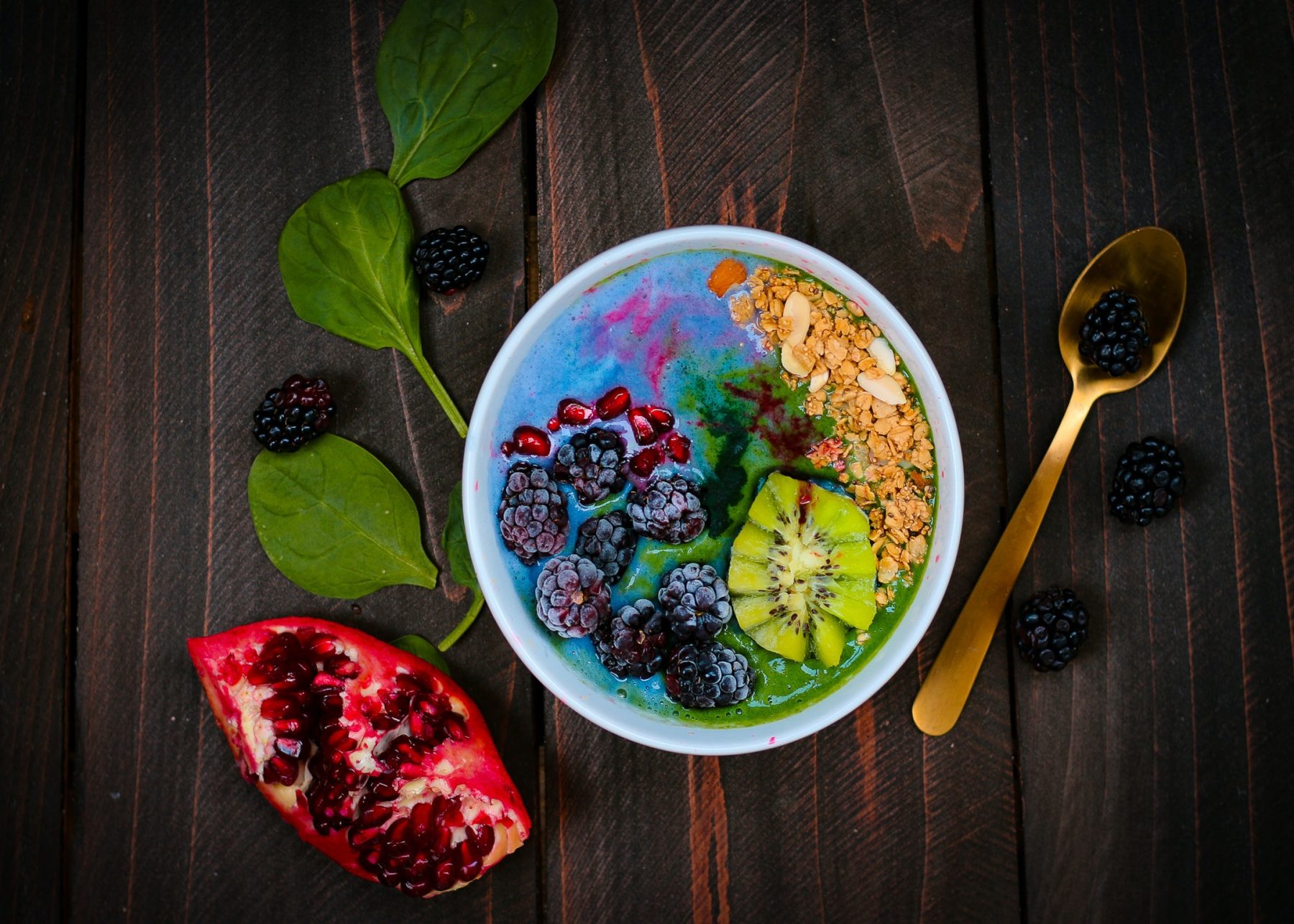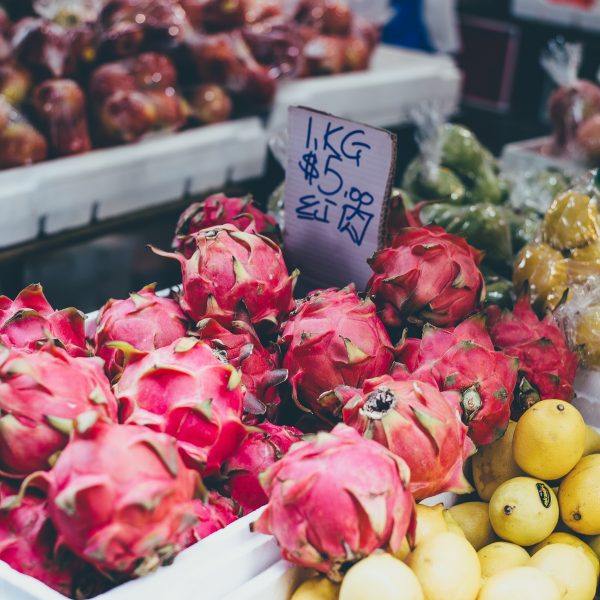Five fats you need to know about when feeding children

Rich, creamy foods satisfy us in a way that other foods just can’t. They may call to mind the comfort of our first foods in breast milk or formula, which supply 40-50 per cent of a baby’s energy as fat. Or perhaps it’s simply because foods containing fats have a better texture and taste – whatever the reason, these foods tend to be more flavourful and greatly contribute to our eating pleasure.
When it comes to feeding children in an early childhood education and care (ECEC) setting, it can be confusing, as many of us have grown up believing that fats should be avoided. The truth is, children need healthy fats in their diets for their nerves, brain and skin cells, to protect vital organs in the body and to help control body temperature.
Fats supply us with essential fatty acids that we can’t manufacture ourselves and help our bodies absorb vitamins A, D, E and K from food – plus fats affect the production of hormones and provide children with the energy they need to thrive.
The Good, not so good, and okay in moderation
Fats with proven health benefits include both monounsaturated and polyunsaturated fats. At the other end of the scale are unnatural trans fats – these carry the same energy density as healthy fats but have no nutritional value and are proven to cause disease. Somewhere between the two lies saturated fat, the fat that does raise cholesterol but not necessarily the kind that clogs arteries.
Not all fats are created equal. Some are beneficial, some are seriously harmful and others are fine in moderate amounts. To complicate matters further, the way in which we use fats in cooking or meal prep can amplify or destroy their goodness.
Good fats
- Monounsaturated fats are those associated with the health benefits of the Mediterranean diet. They reduce bad cholesterol, lower the risk of heart disease, normalise insulin levels and stabilise blood sugar levels.
The best sources are avocado, extra virgin cold-pressed olive oil, extra virgin cold-pressed avocado oil, macadamia nuts, extra virgin cold-pressed macadamia oil.
- Omega-3 polyunsaturated fat – these are known as essential fatty acids because they are essential to vital biological processes in the body. We are not able to manufacture them ourselves so we must include them in our diet to reduce bad cholesterol, decrease the risk of heart disease and more. Deficiency can cause dry skin, eczema, lethargy, weakened immune system, hormonal imbalances and depression. A lack of these fats may also add to symptoms of ADHD in children.
The best sources are oily fish such as salmon, trout, sardines, flaxseeds, chia seeds, walnuts, egg yolks and dark green leafy vegetables. Ensuring meat is grass fed and grass finished (i.e. not grain fed just prior to being slaughtered) will help too.
- Omega-6 polyunsaturated fat – as with Omega-3s, our bodies are unable to make this essential fatty acid and consuming it in the right quantity can help to protect against heart disease, eczema, ADHD and certain allergies.
The best sources include meat, poultry, eggs, sesame seeds, walnuts, pumpkin seeds, linseed green leafy vegetables.
Bad fats
Trans fats are the product of hydrogenating vegetable oils which makes them solid at room temperature and prevents them from spoiling. They’re universally accepted to be harmful, increasing the danger of heart disease by increasing the amount of harmful LDL cholesterol and decreasing beneficial HDL cholesterol, insulin resistance, type 2 diabetes and stroke. There’s really no debate – trans fats should be included only sometimes and avoided wherever possible.
Sources of trans fats include processed foods, especially confectionery, pastries, french fries and store-bought cookies. Anything deep fried, some margarines, vegetable shortening and snack foods like potato chips.
Okay in moderation fats
Saturated fats are okay in moderation, however, there has been a lot of controversy about saturated fats. Primarily found in meat and dairy products, these fats used to be demonised. However, recent findings are suggesting that there is no clear evidence that directly links saturated fat to heart disease. With children, when saturated fat is eaten in moderation and obtained from wholefood sources such as grass-fed beef, coconut oil and high-quality dairy products – it can prove to be a beneficial part of a balanced diet and ensure proper brain health, nerve function and cell membrane health. Growing children need it as part of a well-balanced diet to help them feel satiated.
Sources include coconut oil, pasture-fed beef, lamb, organic chicken, turkey and eggs, whole dairy products. Feeding children saturated fats from these sources as opposed to grain-fed beef or processed sausages will make a key difference.
Eating fat doesn’t make children fat
Healthy children will not gain weight if they eat fat from the correct sources. A child’s energy demands are much higher than an adult’s, so low-fat diets do not provide an adequate supply of nutrients and can disrupt a child’s normal rate of growth and development. I recommend full fat dairy products for all children under two, and healthy children above two as well.
Fat and being satisfied
In contrast to low-fat foods, whole foods leave children more satiated, reducing cravings for bigger portion sizes and unhealthy snacks. Although fat has more calories per gram than carbohydrates or protein, eating the right type of fat can cause your body to burn more energy and importantly can signal to children when they are full as fat causes satiety.
The problem with vegetable oils
Even though vegetable oils contain long-chain polyunsaturated fats and may contain omega-6s which are beneficial in moderation, many vegetable oils are extracted through processing methods that involve heating, highly toxic solvents and various industrial chemicals. The polyunsaturated fats in vegetable oils tend to react with oxygen and turn rancid fairly quickly. To prevent the fats from degenerating, they are often heat treated or hydrogenated.
Unfortunately, these processes turn them into harmful trans fats. If you need to use vegetable oils for cooking, look for organic cold-pressed options wherever possible (as this avoids the danger of heat-damaged vegetable oils) and use in moderation.
Cooking with fats and oils
When vegetable oils are used at high heats, they begin to smoke and the fumes can contain dangerous carcinogenic compounds, which may contribute to cancer. In order to minimise exposure to these it is important to cook only with fats that are stable in high heat.
Extra virgin olive oil – smoke point 160°C
Good for sautéing, light frying, sauces, braising stewing, baking at lower heats, finishing dishes. Not deep frying.
Coconut oil – smoke point 177°C
Good for stir-frying pan-frying, grilling, braising, in raw treats, as a spread or in baking.
Macadamia nut oil – smoke point 210°C
Good for sautéing, grilling, light frying, baking, sauces.
Ghee – smoke point 252°C
Good for frying at high heats, baking and in sauces.
Sesame seed oil – smoke point 210°C
Good for stir-frying, grilling, sautéing, marinades, dressings.
Butter – smoke point 150°C
Good for browning onions, leeks, making eggs, baking and in sauces or as a spread.
Avocado oil – smoke point 270°C
Good for frying meats and vegetables, sautéing greens and adding to sauces. Do not use for deep frying.
Flaxseed oil – smoke point – n/a cold use only
Good in salad dressings or adding to smoothies.
Cheat sheet
Eating healthy fats will…
- Provide essential fatty acids, which have been linked to improved concentration, learning, behaviour and sleep in children.
- Enhance the absorption of fat-soluble vitamins A, D, E and K from food.
- Promote the healthy development of vital organs including brain, eyes and skin.
- Provide a healthy and satisfying source of calories.
- Help regulate blood sugar.
- Help regulate hormones.
Popular

Economics
Provider
Quality
Workforce
3 Day Guarantee comes into effect: New CCS rules unlock access for families and children
2026-01-05 06:30:55
by Fiona Alston

Practice
Quality
Research
The transformative power of affection: How nurturing care shapes early childhood development in Guatemala
2026-01-07 07:00:56
by Fiona Alston

Quality
Practice
Research
Crayola Creativity Week 2026 launches as research highlights strong link between creativity and confidence
2026-01-06 07:00:35
by Contributed Content














